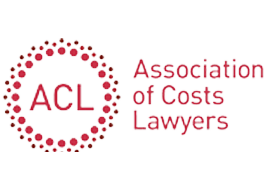In Chocken v Oxford University Hospitals NHS Foundation Trust [2020] EWHC 3269 (QB) the High Court upheld a decision from the Senior Court Costs Office to assess the claimant’s solicitor’s success fee at 50% despite the CFA providing for it to rise to 80% upon service of proceedings as the claimant was always likely to have to issue proceedings and, at the point proceedings were issued, the claimant had already known for some time that liability was not contested.
Background
The claimant suffered from a genetic disorder causing premature fusion of certain skull bones which prevent the skull from growing normally and affect the shape of the head and face. The claimant underwent lengthy surgery at the defendant hospital but was left with significant and permanent leg damage.
The claimant’s solicitors entered into a staged CFA, which provided for the following stages:
Stage 1 – if the claim is concluded at any time before service of proceedings, 50% success fee;
Stage 2 – if the claim is concluded not less than 45 days before the date fixed for trial, 80% success fee;
Stage 3 – if the claim is concluded at any time thereafter, 100% success fee.
Following service of the letter of claim, the defendant admitted breach of duty subject to causation. No offers to settle were made before issue of proceedings. Proceedings were issued and served, and on 29th July 2015 judgment was entered with damages to be assessed.
70 days before the 12-day trial was listed to commence, settlement was reached in the sum of £2,850,000 lump sum, plus periodical payments of £48,000.00 per annum rising to £85,000.00 per annum.
The claimant served a bill of costs in the sum of £1,065,217.70, including an 80% success fee.
The original decision of the Senior Courts Costs Office
At detailed assessment Master James reduced the success fee from 80% to 50%, ruling the following:
“Taking everything into consideration, my view is that the 50% risk assessment at the outset was about right.”
“I am troubled by the increase to 80% on issue of proceedings in a circumstance such as this whereby at the point proceedings were issued, the claimant had already known for some time, and certainly well over a year, that liability was not contested.”
“the claimant in effect already knew that liability was not going to be vigorously defended and that the battle royal in this case was going to be about quantum.”
“But the main point is this: for a case of this severity and of this value, even with the admission of liability, you were always likely to have to issue proceedings. It may perhaps have been more reasonable to set a trigger at the point at which proceedings become contested, perhaps by imposing a trigger of X-amount of weeks after issue or X-amount of weeks after service, or indeed upon receipt of a fully pleaded defence. In my view, the defendant’s submission that you were in effect setting a trigger that was more or less guaranteed to take effect, is one that I think has hit home.”
The Appeal
The claimant appealed the decision on five grounds.
Ground 1 – The Master was not entitled to assess the reasonableness of costs incurred with the benefit of hindsight.
On appeal, the High Court held that the Master had already determined what the position was at the outset. It was inconceivable that she made an error of principle such as was alleged by the claimant; therefore, Ground 1 failed.
Ground 2 – The issue of proceedings is routinely used as a trigger point for second stage success fees across the personal injury sector.
On appeal, the High Court ruled that “it is up to the solicitor to choose how and when (if at all) to stage a success fee. However, the level of the success fee and any staging must be justified. The Master accepted a 50% success fee as reasonable from the outset, given all the risks (liability, Part 36 and risk of deportation in 2015), but did not accept in the circumstances of the case and the initial level of success fee that any increase was justified at the point chosen for stage 2. She considered that 50% was reasonable up to a point close to trial. This was a decision she was entitled to make. In addition she was concerned that in this case from the outset proceedings were likely, even if liability was conceded, such that the trigger could not be justified as reasonable.” Ground 2 therefore failed.
Ground 3 – The Master was wrong to conclude that the admission resulted in the claim not being “heavily contested”.
It was held that “the Master did not use the phrase “heavily contested”. She fully accepted that this was a case of severity and substantial value. The point she made was that the claimant was always likely, given those facts, to have to issue proceedings.”
Ground 4 – If the Master was right to conclude that the service of proceedings was an unreasonable trigger point, she was wrong to conclude that the second stage success fee ought to be limited to the same level as the first stage success fee.
The High Court ruled that “the Master found that, having regard to all the relevant risks, a 50% success fee was reasonable. She also found that an increased success fee at the stage of service of proceedings was not reasonable. She judged that a 50% success fee was reasonable up to and including the point at which the case settled. This she was perfectly entitled to do.”
Ground 5 – The Master was wrong to reject the fact that the claimant was a Mauritian national whose immigration status was uncertain and which may have resulted in his removal from the jurisdiction before the claim was concluded.
This ground was based on a mis-reading of the judgment and so the claimant did not pursue this ground.
The claimant’s appeal was dismissed.






